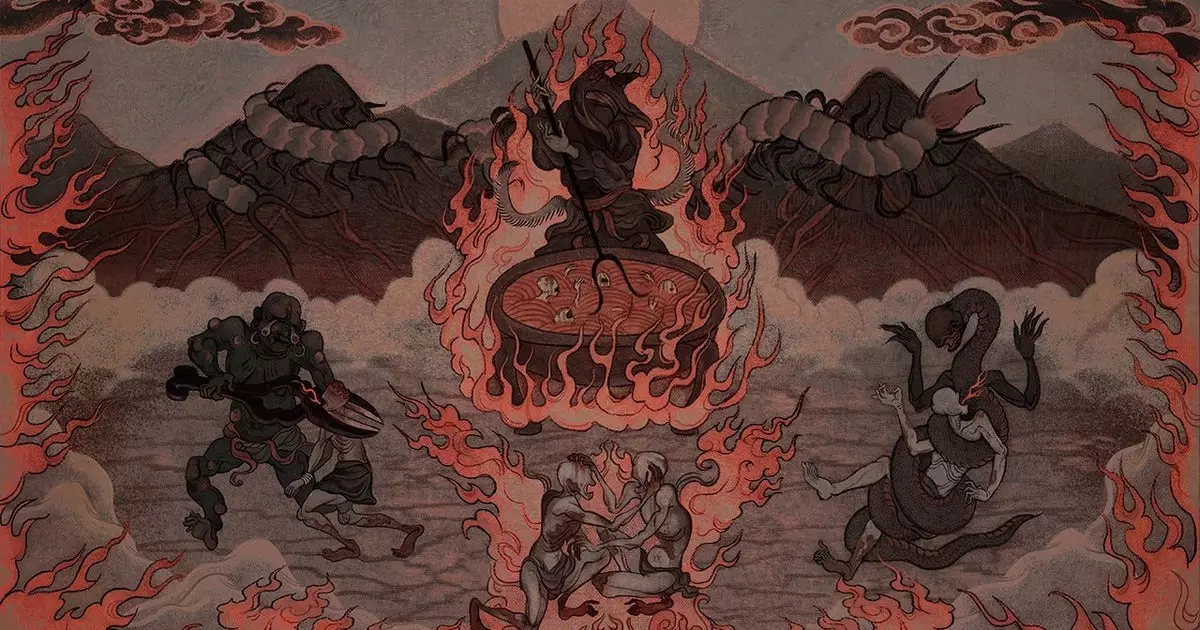In the realm of indie horror gaming, few entries captivate and terrify as effectively as *Labyrinth Of The Demon King*. This unsettling title distills the sinister essence of classic horror franchises like *Silent Hill* and *Amnesia: The Dark Descent*, crafting an experience that is both nostalgic and grotesquely innovative. Its recent release is nothing short of an audacious foray into the darkest corners of game design, presenting players with an unflinching landscape of psychological unease and survival horror mechanics. The narrative unfolds within a grim rendition of mythical feudal Japan, a setting steeped in eerie folklore and adorned with the grotesque—setting the stage for a frantic exploration where every decision could spell doom.
The Convoluted Maze of Gameplay
At first glance, players are thrust into a nightmarish world where danger lurks around every corner. The protagonist’s mission involves tracking down a lord’s betrayer—an infamous yokai—crafted with a narrative simplicity that belies the intricate challenges ahead. The game’s mechanics offer an engaging yet punishing experience, drawing inspiration from the stamina-based combat system reminiscent of From Software’s early titles, such as the *King’s Field* series. However, the game’s unforgiving nature, coupled with the sluggish movement and disorienting environment, can lead to moments of sheer frustration. Players soon find themselves stumbling through grotesque locales filled with mutated adversaries, each encounter a dance with death that leaves one questioning their every move.
A Frightening Cast and Compelling Atmosphere
The horror manifests not only through gameplay but also through a cast of nightmarish entities referred to as “filthbastards”—aberrations of humanity that embody fear itself. Each encounter is shrouded in a chaotic melee where foes vie for survival, and in this savage world, the player is merely an unwelcome guest. It’s this visceral combat and the relentless pursuit for survival that creates a sense of helplessness that is supremely effective in enhancing the game’s ominous atmosphere. The environmental sound design plays a critical role in immersing players into this grim reality; with whispers and distant screeches echoing throughout compromising locales, the soundscape feels alive, incrementally heightening the tension.
The Visuals: A Nostalgic Yet Contemporary Approach
Visually, *Labyrinth Of The Demon King* stands out with its dedication to a deliberately retro presentation reminiscent of early PS1 horror games—but this isn’t just a mere nostalgia trip. The dithering effects, angular camera perspectives, and jarring cutscene sequences collectively frame an unsettling visual narrative. It’s an art style that evokes confusion and dread, forcing players to feel just as lost as their character. Every locked door and frustrating navigation mirrors the psychological affliction of being trapped within an incomprehensible maze. It’s a deliberate design choice that not only serves the story but also plays to the fears of the player, rendering the game itself a character within the narrative.
The Struggle for Survival
In this unnerving landscape, survival hinges upon resource management and decision-making. The protagonist’s pitiful arsenal—a bottle of sake, tattered bandages, and a nearly useless katana—speaks volumes about their current plight. Every item carries weight not only in the game’s mechanics but also in the emotional investment players have with the storyline. The overarching threat is palpable, pushing players to seek out allies, like the blacksmith imprisoned in the pantry, while navigating the perils presented by the diabolic “cat”—a new player in the twisted ecosystem of danger.
The mechanics—especially kicking and stamping to vanquish foes and harvest resources—create a surreal yet satisfying layer to the challenge. It’s both grotesque and strangely gratifying; however, the weight of conscription means that the stakes feel heightened.
Ultimately, *Labyrinth Of The Demon King* is an exploration of fear executed with an elegantly sinister hand, an experience that holds its players to the fire as they grapple not with mere monsters, but with the very visceral essence of dread itself.

